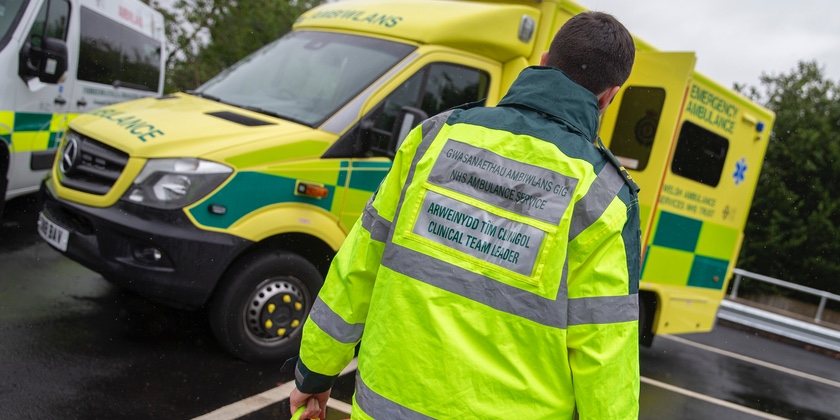Violence against UK ambulance staff set to surpass 20,000 incidents annually

New data from the Association of Ambulance Chief Executives (AACE) reveals that UK ambulance services are on course for the highest recorded level of violence, aggression, and abuse directed at their staff, with over 20,000 incidents expected by the end of the 2024-25 financial year.
This equates to at least 55 ambulance workers being abused or attacked every day.
Reported incidents include kicking, punching, slapping, head-butting, spitting, verbal abuse, and sexual assault.
Some incidents involve serious attacks with weapons, though many cases remain unreported, suggesting the true scale is even greater.
Jason Killens, Chair of AACE and Chief Executive of the Welsh Ambulance Services University NHS Trust, expressed his concern, stating:
“It is with huge regret that we see the level of violence, aggression and abuse across all UK ambulance services increasing and that frontline clinical employees as well as call handlers are affected.
“This unacceptable behaviour has a major long-term impact on the health and wellbeing of ambulance people who are simply trying to do their jobs and help save lives. This is why we are making a plea to the public to ensure that our staff are treated with the respect they deserve, especially during the busy festive period. We are also asking the judiciary to use their full powers under the Assaults on Emergency Workers Offences Act 2018 legislation to ensure appropriate sentences are handed out consistently to those found guilty of committing these crimes against our workforce.”
The rise in violence comes during the busiest winter months, with over 5,000 incidents anticipated between December 2024 and February 2025, according to AACE.
December alone could see over 2,000 incidents, fuelled by alcohol and seasonal celebrations.
The data indicates a troubling upward trend in attacks on ambulance staff over recent years. In 2021-22, there were 15,430 recorded incidents, rising to 15,857 in 2022-23, and surging to 19,633 in 2023-24—a 23.8% increase.
By September 2024, halfway through the current financial year, 11,817 incidents had already been recorded.
Factors contributing to the assaults include alcohol, drug use, and mental health crises. Incidents involving race and sexuality as aggravating factors have also risen.
Anna Parry, Managing Director of AACE, emphasised the impact of such abuse:
“These new figures highlight the upsetting fact that ambulance employees face the very real possibility of being subject to violence or abuse each time they start a shift.
“This can have a significant and lasting impact on wellbeing and sometimes even lead to people leaving the ambulance service.
“Our ongoing #WorkWithoutFear campaign is shining a light on this alarming issue and raising awareness of the negative impact of this behaviour on our people, while a significant amount of work is ongoing within ambulance services to help better protect our workforce.”
In response to the escalating violence, NHS ambulance services have implemented several measures to protect their staff, including the establishment of dedicated violence prevention teams, the piloting of body-worn video cameras to document incidents, and the creation of a centralised violence dataset to ensure consistent reporting and analysis.
Staff are also receiving training in restrictive interventions to safeguard themselves and patients in volatile situations, while counselling and post-incident support are provided for those affected. Additionally, the Assaults on Emergency Workers Offences Act 2018 offers a framework for harsher penalties against offenders, and AACE is calling on the judiciary to fully utilise these powers.
Responding to Association of Ambulance Chief Executives research into assaults experienced by ambulance workers, Rachel Harrison, GMB National Secretary, said:
“Ambulance workers do their jobs to save lives.
“But thousands of them are bitten, attacked, spat at, and even sexually assaulted.
“No one should have to put up with that, least of all those who are there to help us.
“GMB members helped change the law, bringing in the Protect the Protectors legislation, but more needs to be done.
“We need full enforcement of the Protect the Protectors legislation, investment in better systems to flag offenders, more focus on prevention and much better support for the victims of violence.”
Spotted something? Got a story? Send a Facebook Message | A direct message on Twitter | Email: [email protected] Latest News








